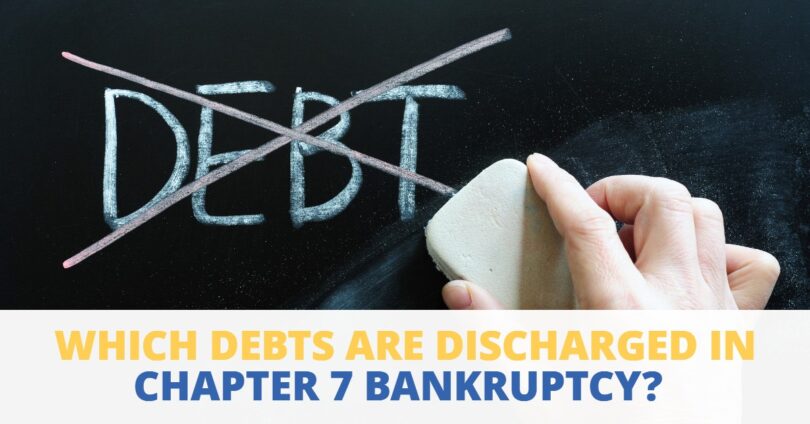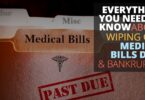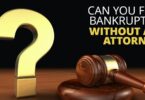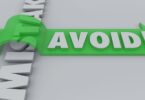For most people, the main goal of filing for Chapter 7 bankruptcy is to discharge (wipe out) their debts. Although some debts are “nondischargeable” (they don’t go away in bankruptcy), many people who file for Chapter 7 will be able to discharge most or all of their debts. Credit card debt is one of the most commonly discharged debts, but Chapter 7 will discharge many other types of debt, as well.
What Is a Discharge and How Does It Work?
A discharge releases individual debtors from personal liability for the debt and prevents the creditor owed that debt from taking any collection actions against the debtor. In other words, the debtor is no longer legally required to pay any discharged debts.
Although a debtor is not personally liable for discharged debts, a valid lien that has not been avoided (made unenforceable) in the bankruptcy case will remain. Therefore, a secured creditor may enforce the lien to recover the property secured by the lien. For instance, if you don’t make arrangements to continue paying your car payment by signing a reaffirmation agreement, the discharge will wipe out your obligation to pay the car loan; however, you won’t get to keep the car. The lender will use its lien rights to repossess the vehicle.
In most cases, Chapter 7 bankruptcy filers automatically receive a discharge at the end of their case. In Chapter 7, the court usually grants the discharge 60 days after the 341(a) Meeting of Creditors. Typically, this means you will obtain a discharge about four months after filing your Chapter 7 petition.
Which Debts Are Dischargeable?
You’ll find a listing of debts that qualify for discharge under the heading, “Common Categories of Dischargeable Debt” below. But the debt must meet timing requirements, too. Here’s how it works.
- Pre-filing debt. A pre-petition debt is an obligation incurred before the day that you file for bankruptcy. At the end of your case, the bankruptcy court will discharge all qualifying pre-petition debt, such as credit card balances, personal loans, and medical debt.
- Post-filing debt. The bills that you rack up after submitting your initial bankruptcy paperwork are post-petition debt. In all bankruptcy types, you remain responsible for paying for balances that you incur after the initial filing date, even though your case isn’t over.
In short, among your dischargeable debt, only your debts that arose before the date of filing for Chapter 7 will be discharged. You will still be responsible for any debt you incur after filing your petition but before receiving a discharge.
Example. Jessica fell behind on her electric bill before she filed for bankruptcy. Per requirements, she listed the debt with all of her other obligations in her bankruptcy schedules. After filing, she continued to use her electric service. At the end of her case, the energy charges that predated her bankruptcy filing date were wiped out. However, she had to pay for her post-petition electricity use from the filing date forward.
(An important aside: A utility provider cannot refuse to provide service because you filed bankruptcy; however, the provider can charge a reasonable deposit to ensure future payment.)
Finding your filing date is easy to do. Simply pull out any bankruptcy document sent to you by the court. (You’ll be sent copies of all notices, even if an attorney represents you.) The filing date will appear at the top of the page next to your case number.
Helpful hint. If a creditor calls you after you file bankruptcy, providing your case number and the filing date will likely stop the calls cold. With that information, a creditor can quickly verify your bankruptcy. If the calls don’t stop, the creditor will be subject to sanctions.
Common Categories of Dischargeable Debt
The Bankruptcy Code lists 19 categories of debt that cannot be discharged. Everything that does not fall into these categories is dischargeable. Below is a list of the most common dischargeable debts. However, any misconduct or fraud in connection with the below categories might make them non-dischargeable.
- credit card charges (including overdue and late fees)
- collection agency accounts
- medical bills
- personal loans from friends, family, and employers
- utility bills (past due amounts only)
- dishonored checks (unless based on fraud)
- student loans (only in the rare circumstance that you can prove undue hardship)
- repossession deficiency balances
- auto accident claims (except those involving drunk driving)
- business debts
- money owed under lease agreements (includes past due rent)
- civil court judgments (unless based on fraud)
- tax penalties and unpaid taxes past a certain number of years
- attorney fees (except child support and alimony awards)
- revolving charge accounts (except extended payment charges)
- social security overpayments, and
- veterans assistance loans and overpayments.
Article reference:
https://www.nolo.com/







